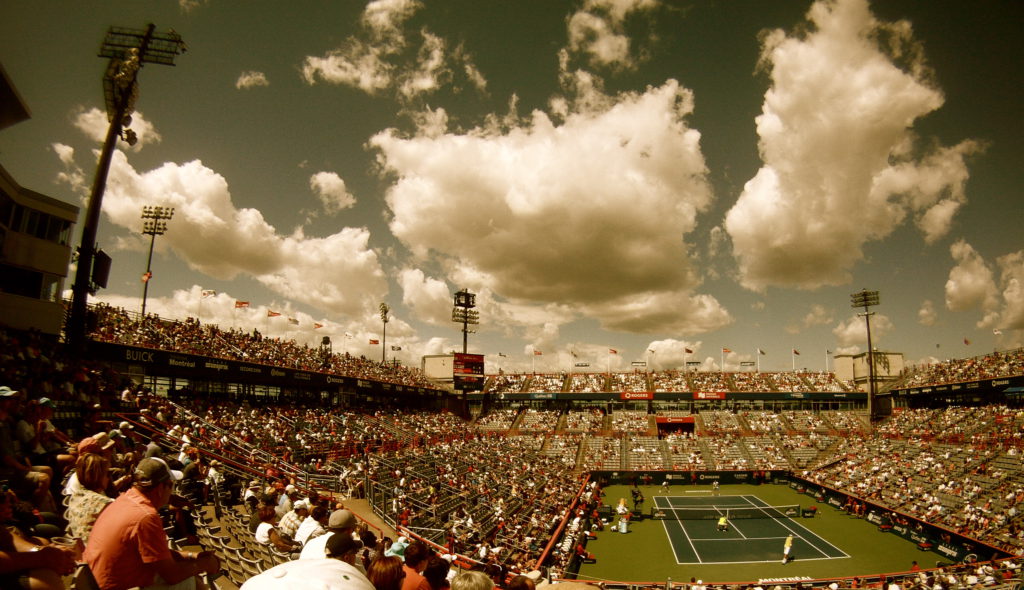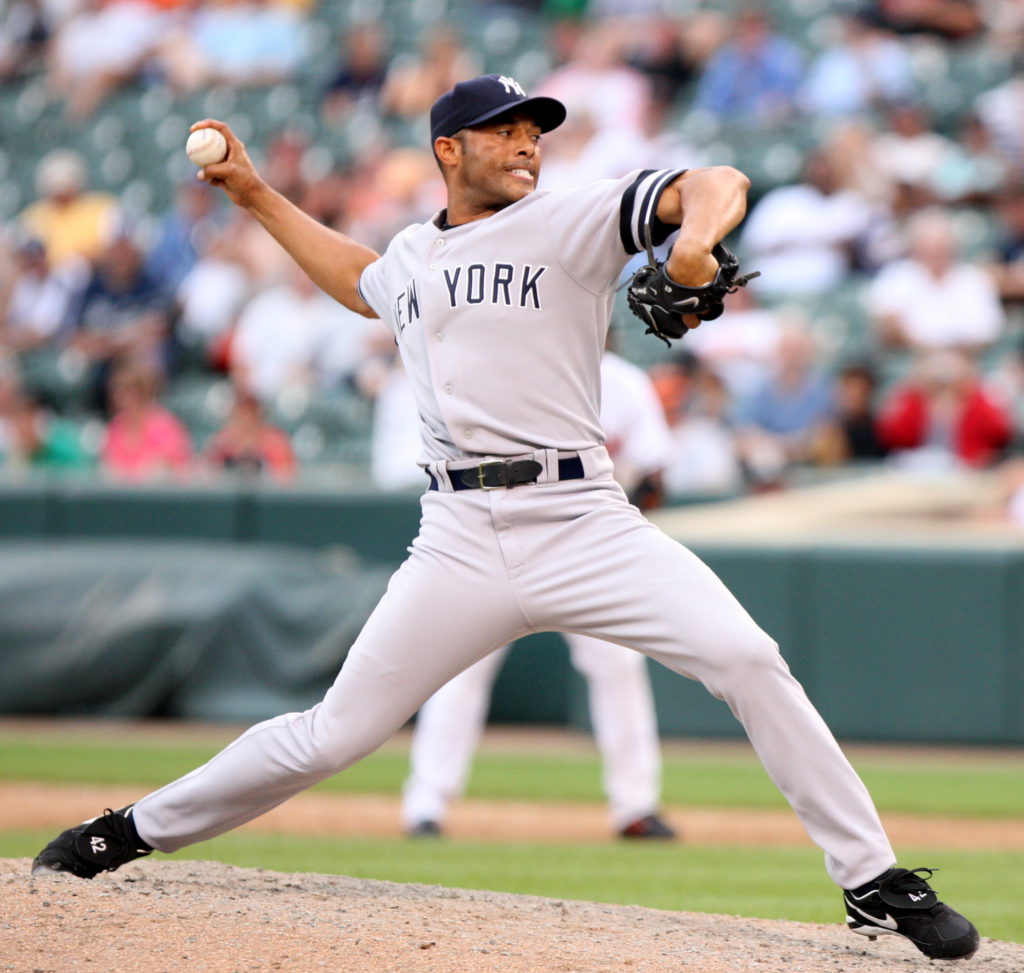Below you’ll find two quotations. Take a second to read them both over.
I have talent, no doubt. My advantage is that I know the game well. The reason is that I grew up in it and had a good teacher in my father. I’m sure that whatever I am as a man and a ballplayer comes from the way I was raised. But am I a superstar? Oh, no. I don’t think I stack up with the great players in the league.
“Jose Fernandez is a great example. Jose Fernandez will strike you out and stare you down into the dugout and pump his fist. And if you hit a homer and pimp it? He doesn’t care. Because you got him. That’s part of the game. It’s not the old feeling — hoorah … if you pimp a homer, I’m going to hit you right in the teeth. No. If a guy pimps a homer for a game-winning shot … I mean — sorry.
You’ve probably guessed that both of these quotes can be attributed to MLB players. In fact, they’re both MVPs. That’s about where the similarities end. Much has been made of Major League Baseball’s “culture war” and these two sentiments do a pretty good job of summing up the battle cries of each side.
The first one is Cal Ripken, baseball’s “iron man.” The second is Bryce Harper, arguably baseball’s best active player and almost certainly loudest voice.
In the 25 seasons between Cal Ripken’s MVP win and Bryce Harper’s, the world has changed rapidly. Baseball? Not nearly as much. But is that a bad thing? Well, the way you answer that question will probably determine which side of baseball’s widening fault line you belong.
The Case for the Old
Much of the recent headbutting over baseball’s culture stems from the collision of the new vs. the old. The perceived erosion of the game’s traditional elements has certainly led to some tension between the old guard and those who would seek to modernize the game. While the game runs the risk of eventually being relegated to second-tier sports status by refusing to adapt, it’s worthwhile to celebrate and attempt to preserve some of the charms that made baseball America’s pastime in the first place.
One of the most controversial aspects of baseball is the pace of the game. Younger fans don’t seem to have the patience for a season of 162 games that clock in at over three hours a pop each. There’s also the perception that there isn’t a whole lot going on 90% of the time the players are on the field.
While those criticisms might be in line with the on-demand culture of the past few decades, we should consider that preserving one last bastion of timelessness might be a positive. Baseball games might not always be action packed, but they do create an environment of relaxation; an environment where you don’t have to rush. A respite from calls, appointments, and notifications of every sort is something that the endless summer vibe of baseball can provide.
Another point of contention in the culture war is on-field conduct, especially how to act when you’ve made a great play.
Hall of Fame pitcher, Goose Gossage made headlines back in March when he criticized Jose Bautista of the Blue Jays with a few choice words: “Bautista is an f—ing disgrace to the game.” He went on to take issue with Bautista “Throwing his bat and acting like a fool…”
While Gossage used a colorful outburst to illustrate his point, there may be something to his sentiment. Against the backdrop of a culture that perhaps too heavily values stardom and individual self-promotion, maybe there is room for baseball to set the example for acting like you’ve been there before.
These are just a few examples of the old school mentality that makes baseball the nostalgic portal to another time that has captured American imaginations for generations. It might be easier to deem baseball’s traditions obsolete, but working to preserve them may help maintain some of the wonderful but increasingly inconvenient values of yesteryear.
The Case for the New
On the other hand, values and nostalgia don’t pay the bills and numbers don’t lie. The hard truth that baseball purists need to face is that the sport has a problem. It’s actually not an immediate problem, which makes it easier to ignore, but doesn’t make it any less real.
The Washington Post published an article a little over a year ago about the decline in youth baseball. The Post quotes Rich Luker of ESPN’s polling department who does an excellent job of summing up the reality the MLB will be facing over the next twenty years:
“If baseball does nothing, they’ll probably stay flat for another 10 years. But 20 years from now, they’ll be moving to a secondary position in American life, doomed to irrelevance like Tower Records or Blockbuster Video.”
If being compared to blockbuster isn’t enough of a death knell, the numbers back up Luker’s projection. Major League Baseball has the oldest viewers on average of any of the big four sports at 53 years old and climbing. For comparison, the NBA boasts the youngest fanbase at 37 years old and staying flat year over year.
While MLB ratings have remained decent and game attendance has not seen any significant dip, an aging fan base that’s not being replenished by a younger demographic spells trouble down the road. So what’s at the root of this climbing average age?
Sophomore MLB commissioner Rob Manfred posits that “the single biggest predictor of avidity in sports is whether you played as a kid.” If his line of thinking is right, then we have to turn our eye to youth baseball. Those numbers don’t look great either.
Youth baseball participation has been declining for the better part of twenty years. Some of this has to do with increased participation in other sports, especially basketball, and soccer. That coupled with the pressure for elite young athletes to focus on honing their skill at one sport has left baseball as the proverbial last kid picked in gym class.
Because this is something of a long-term trend rather than a recent development, youth baseball recruitment is now faced with recruiting kids whose parents never played the sport themselves. This has fed into the growing disconnect between young people and what was once America’s game.
With a potential slow decline on the horizon, it would be negligent not to give some credence to the criticisms flying from the new school camp of the culture war. Bryce Harper, quoted at the top of the piece, might not be the traditional ambassador of baseball, but as a young elite player, his feelings probably closely mirror those of the young fan that the MLB is failing to hook.
ESPN recently published a piece about Harper’s crusade to make the game fun again. Regardless of what you think of Harper personally, his comments that baseball makes it difficult to express yourself as an individual hold some water and may shine a light on why the sport has difficulty attracting the younger generation.
It doesn’t lend itself to highlights like football and basketball do. The game is a story, a battle, that takes place mostly in the minds of the pitcher and the batter. That doesn’t make great social media fodder and it definitely doesn’t create the brash superstars that have driven other sports, especially the NBA.
Faced with these pending challenges, there’s little doubt that baseball needs to make some changes, but drawing the line will be difficult.
Moving Forward
So where are we left after listening to the battle cries of each side of the culture war? Hopefully, somewhere squarely in the middle. The future of baseball needs to be about compromising between the things that have made the game great for over a century and the realities of the modern age.
More social media integration and more on-demand content may help. The MLB is already undertaking projects to that end. Some of the new rules put in place last season that requires batters to stay in the box and that limit the time between innings should help to keep the game moving at a good clip without forcing stringent time constraints that could damage the soul of the game.
As far as on-field celebrations and individual expression go, maybe the NFL model can provide some guidance. NFL players are known for their signature end zone dances but excessive celebration and especially taunting can saddle you with a 15-yard penalty. Baseball probably doesn’t need to legislate this difference but drawing a distinction between celebrating and gloating might prevent the younger players and fans from feeling stifled while maintaining the dignity of the game for the more traditional sluggers and their fans.
While the war rages on, one has to hope that when the dust settles, a version of baseball equal parts new and old will remain and continue to enthrall Americans for generations to come.



